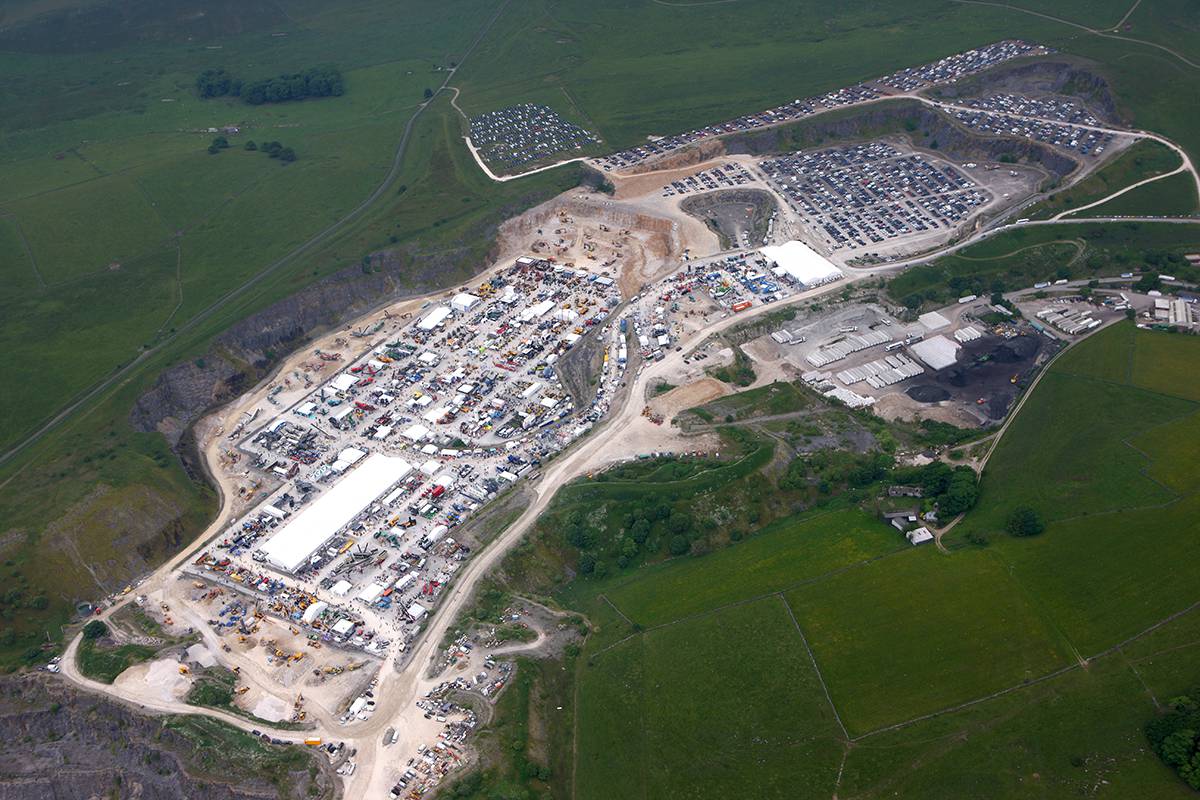Balfour Beatty calls for expansion with a bold post-Brexit Aviation Policy
Following the vote to leave the EU in June 2016, the UK’s place in the world is changing. International connectivity will be more important than ever if the UK is to capitalise on those changes. To remain a competitive, global trading nation post-Brexit, Balfour Beatty believes that the UK needs a post-Brexit Aviation Policy to maintain a world-class hub airport which will open up trade routes to key growth destinations in new markets in Africa, South America and Asia. Direct international links are vital to the UK economy.
Having a direct, daily air route to a country results in 20 times more trade than with countries where there is a less frequent or no direct service. Frequent, direct flights attract foreign companies establishing European headquarters in the UK; they also encourage tourism, an industry which generates around 7% of the UK’s GDP, supporting jobs and investment and generating significant export revenue. By contrast, Frontier Economics has calculated that a lack of direct connections to emerging markets could be costing the UK over £1.2bn a year, with trade going to better connected countries instead.
New direct routes and more frequent flights to existing direct destinations would, in Balfour Beatty’s view, send a clear signal that the UK remains open for business. However, official forecasts show that unless work begins on a new runway in the near future, the major airports in the South East of England will be full by 20304, if not before.
New routes to emerging growth markets can therefore only be added if routes to existing markets are dropped. This situation, if allowed to continue, will make the UK less, rather than more competitive post-Brexit. Indeed, while other countries have been increasing their aviation capacity, Heathrow has been operating at 98% capacity for some time and the UK is already falling behind other EU countries in terms of the number of runways they have at their largest airports: Amsterdam Schipol has six runways (with land reserved for a seventh), Paris Charles De Gaulle has four (and three more at Paris Orly), while Frankfurt and Brussels both have three.
A major concern is that the lack of capacity at Britain’s major airports will impact UK companies’ ability to fulfil their growth potential, with a subsequent knock-on impact on the UK economy. A lack of capacity also has an impact on the trade negotiations the Government will conduct post-Brexit, with many countries likely to require access to Heathrow for their national carrier as part of any deal. Nor does the UK have direct flights to some of the countries it will wish to target as key trade partners.
If work does not begin soon to increase capacity in the South East, London and the UK will have been overtaken by other major European cities as transport hubs, with the consequence that business and investment will move elsewhere and jobs will be lost. It is therefore imperative that the UK backs plans to expand UK runway capacity with at the very least a third runway at Heathrow. Progress should be accelerated and bold decisions should be made regarding Britain’s future connectivity and in the long-term national interest. In particular, Balfour Beatty believes that the vote to leave the EU – which took place after the Airport Commission reported in 2015, must now be taken into account in considering the UK’s future aviation capacity needs. Maintaining the UK as a global power outside the EU and as a serious trading nation requires ambitious and forward looking thinking.

Is one new runway enough?
In July 2015, the Airports Commission published its final report recommending that the North-West runway option at Heathrow be built. In its report, the Commission also concluded that a
second additional runway would be needed by 2050, stating that there is:
“…likely to be sufficient demand to justify a second additional runway by 2050 or, in some scenarios, earlier.”
However, with demand for air travel forecast to continue to increase within the range of 1% – 3% a year up to 2050 and a need for the UK to open up as many new trading routes as possible, it is believed that an additional new runway will be needed sooner. Furthermore, it is likely that, by the time the new third runway opens, demand will have risen to such a level that it is immediately at capacity.
Balfour Beatty believes that the growth in demand for air travel and the need for greater connectivity post-Brexit demands expansion not just at Heathrow and Gatwick, but at other airports across the country, such as Scotland, Birmingham and Manchester, too. Indeed, aviation growth is just as important outside of London. The Northern Powerhouse for example, needs direct routes to global markets, as do manufacturing industries in the Midlands, and Cambridge and its growing IT hub.
Balfour Beatty therefore calls for runways to be built at both Heathrow and Gatwick, the UK’s second-busiest airport, handling 40 million passengers a year on one runway, according to Civil Aviation Authority (CAA) figures, and for work to begin now to identify where else the UK could most benefit from new runways.
Of course, the economic benefits are not the only points to consider: a balance must be struck between environmental impacts of an increase in airport capacity, such as air quality, carbon emissions and other pollution issues, increased noise, and the economic benefits that aviation expansion brings.
The Airports Commission published a large amount of detailed analysis on air quality and greenhouse gas emissions alongside its report, and we welcome the thoroughness of their approach.
There must be a package of measures put in place to manage carbon and nitrogen dioxide emissions in particular and we agree that the onus should be on airports, working with their delivery partners, to put forward ambitious solutions to these challenges.
Balfour Beatty welcomes the significant progress there has been already on carbon emissions and aircraft noise over the past decades, progress which will continue as aircraft are replaced and upgraded. While aviation presents a major threat to Government targets in terms of emissions growth, road vehicles are the principal contributors of air pollution around most airports. This is a national problem, which needs Government action and the proposed surface access plans outlining improved public transport options for passengers and those working at the airport, and that the cost of improving road access will fall not to the taxpayer but to the developers.
However, while there is an environmental impact of airport expansion, these issues should not stand in the way of ensuring that the UK economy is in a strong position to take advantage of the opportunities Brexit offers.

The bigger picture
There has not been a new full-length runway in London and the South East since 1945.
A firm decision leading to action on airport expansion has been delayed ever since an additional runway was first proposed for Heathrow by Clement Attlee’s Government in 1949. Schemes have been approved, amended and suspended since then. Even now, it is unclear whether the third runway will ever be built, given the legal, practical and political obstacles: at the very least, the decision on airport expansion is likely to face considerable legal obstacles and the planning process is likely to continue into the 2020s.
This uncertainty puts the UK at a competitive disadvantage in relation to other countries, which have been able to develop and build new runways during the past decades, as outlined in the previous section. The Istanbul New Airport, to take a recent example, was approved in 2013, and is on course to open as scheduled in 2018. Once finished, it will be the biggest air travel hub in Europe and one of the largest airports in the world, with a capacity of 200 million passengers a year, serving more than 350 international destinations and hosting over 150 airlines.
Beyond the specifics of a third runway at Heathrow, the piecemeal approach to aviation policy-making over the past several decades must end. The Government should now develop a national aviation strategy, which considers the country’s future aviation needs holistically and addresses the contribution all the UK’s airports can make to improving the UK’s global connectivity, driving growth across the country, and enabling international trade and investment.
This was a conclusion of the Interim Davies Commission report, a conclusion Balfour Beatty welcomed, and welcomes the fact that the Government has committed to bring forward such a strategy. The new national aviation strategy should also include a national strategy for improving road and rail links to UK airports both in the short-term, future proofed to ensure that we have the infrastructure Britain needs for the long-term, and an assessment of other ways smaller airports might be supported and given the opportunity to thrive.
Balfour Beatty calls for a plan that should also be developed to address the growing demand for air services during the 10 to 15 years it will take to deliver any new runway, to ensure that the UK remains as competitive and as attractive to investment and tourism as possible. This plan should include measures to better use existing runway capacity at other airports – particularly the five other London airports – and to improve surface access to those airports.
Conclusion
The UK must maintain the best possible access to European and other existing markets, as well as forging new connections with emerging markets.
It must ensure that it remains one of the best connected countries in the world so that its economy can continue to thrive post-Brexit. In order to achieve this the UK must be bold and ambitious in its aviation policy. Balfour Beatty supports the building of a third runway at Heathrow. However, Britain must look beyond London to ensure businesses across the UK have access to the markets they need. We must become more strategic, ending the piecemeal approach to upgrading our aviation infrastructure. With the right plans in place, aviation can take its place at the heart of UK industrial strategy and deliver the economic growth and dynamism that the UK needs.

The key points
- The vote to leave the EU – which took place after the Airport Commission reported – must be taken into account in considering aviation capacity requirements.
- A lack of runway capacity has an impact on the trade negotiations the Government will conduct post-Brexit, with many countries likely to require access to Heathrow for their national carrier as part of any deal. Nor does the UK have direct flights to some of the countries it will wish to target as key trade partners.
- Balfour Beatty supports a third runway at Heathrow. However, one additional runway will not be enough to provide sufficient capacity to meet increasing demand over the long-term, given that international connectivity will be more important than ever post-Brexit.
- Post-Brexit, it is even more important that all parts of the UK are well-connected; the Northern Powerhouse for example, needs direct routes to global markets, as do manufacturing industries in the Midlands, and Cambridge and its growing IT hub. The Government must begin work now to identify where further runways are required to best benefit a post-Brexit UK.
- The growth in demand for air travel demands expansion not just at Heathrow and Gatwick, but at other airports across the country, including for example, Scotland, Birmingham and Manchester.
- A plan should be developed to address the growing demand for air services during the 10 to 15 years it will take to deliver any new runway. This plan should include measures to better use existing runway capacity at other airports – particularly the five other London airports – and to improve surface access to those airports.
- The piecemeal approach to aviation policy-making must end. As recommended by the Airports Commission, the Government should now develop a national aviation strategy, which considers the country’s future aviation needs holistically and addresses the contribution all the UK’s airports can make to improving the UK’s global connectivity, driving growth across the country.
- A national aviation strategy should include a national strategy for improving road and rail links to UK airports both in the short-term, future proofed to ensure that we have the infrastructure we need for the long-term.
- A national aviation strategy should also include an assessment of ways in which smaller airports might be supported and given the opportunity to thrive.
- While we must limit the environmental impact of airport expansion these issues should not stand in the way of ensuring that the UK economy is in a strong position to take advantage of the opportunities Brexit offers.
Balfour Beatty
Balfour Beatty is a leading international infrastructure group. With 15,000 employees across the UK, Balfour Beatty finances, develops, delivers and maintains the increasingly complex infrastructure that underpins the UK’s daily life. Delivering projects across transportation, power and utility systems, social and commercial buildings: from Crossrail and Heathrow T2b to the M25, M60, M3 and M4/M5; Sellafield and soon Hinkley C nuclear facilities; to the Olympics Aquatic Centre and Olympic Stadium Transformation. Specifically in relation to aviation, Balfour Beatty has significant experience in airport infrastructure development in the UK, US and Hong Kong, with experience covering all aspects of airport and airfield work, including major passenger terminals and passenger transit facilities, airport facilities, and a full range of service installations.





























